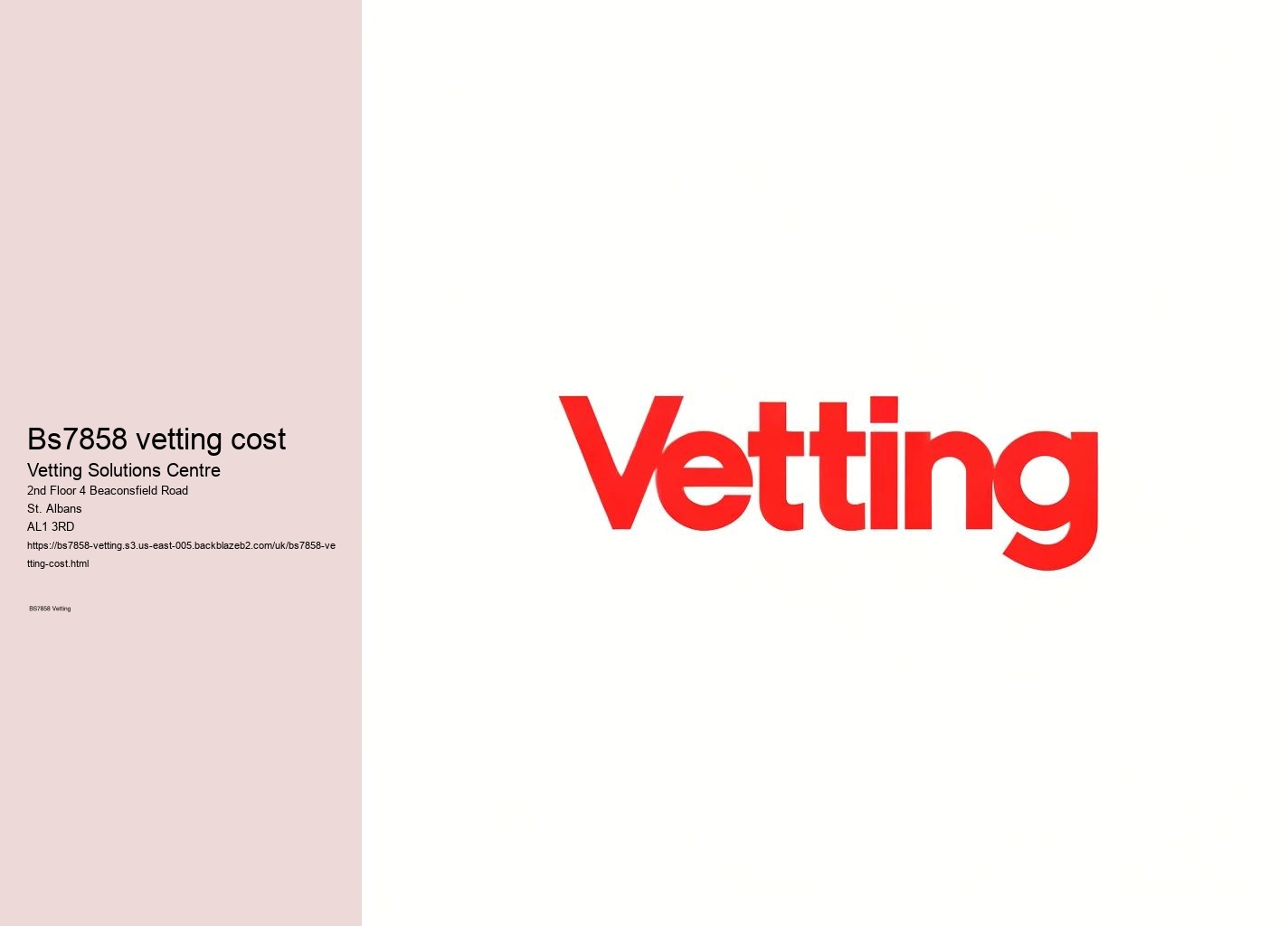

In summary, adherence to BS 7858 can provide a solid foundation for com-panies looking to achieve or maintain ISO accreditation. It demonstrates a commitment to best practices, enhances trust and credibility, and supports compliance with ISO requirements, particularly those related to quality management and information security.
For a BS7858 check, several types of documents are typically required to verify the identity, history, and integrity of the individual being vetted. The specific documents needed can vary depending on the organization and the specific circumstances of the individual, but generally, the following are required:
Proof of Identity: Valid passport, driving license, or national identity card. Proof of Address: Recent utility bills, bank or credit card statements, or council tax statements (usually documents from the last 3 months are required).
Right to Work: Documents proving the individual's right to work in the UK, such as a passport or biometric residence permit.
Employment History: Details of full employment history for at least the past 5 years, including contact information for references. Gaps in employment need to be accounted for. Educational and Professional Qualifications: Certificates or diplomas for relevant qualifications.
Criminal Record Check: A DBS check (Disclosure and Barring Service) or equivalent may be required to disclose any criminal records.
Financial Check: This may include a credit check to identify any undischarged bankruptcies, insolvencies, or significant financial issues.
Character References: Names and contact details of individuals who can provide character references.
Each document serves to build a comprehensive picture of the applicant's background, character, and eligibility for positions requiring trust and integrity. Organizations must also comply with GDPR and the Data Protection Act when handling these documents, ensuring privacy and security of personal information.


The BS7858 standard, which outlines the best practices for security screening of individuals employed in a security environment in the UK, is not underpinned by a specific piece of legislation. Instead, it operates within the framework of various UK laws and regulations that relate to employment practices, data protection, and equality. These include:
Data Protection Act 2018 (DPA 2018): Incorporates the EU General Data Protection Regulation (GDPR) into UK law, governing the handling of personal data during the vetting process.
Equality Act 2010: Ensures that the BS7858 screening process is conducted without discrimination on the grounds of protected characteristics such as age, disability, gender reassignment, marriage and civil partnership, pregnancy and maternity, race, religion or belief, sex, and sexual orientation.
Human Rights Act 1998: Protects individuals' rights in how their personal information is used by organisations during the screening process.
Rehabilitation of Offenders Act 1974: Relevant for considering the disclosure of spent convictions during the vetting process.
Employment Rights Act 1996: Provides a framework for fair treatment in employment practices, which would encompass the screening processes.


While BS7858 itself is a voluntary standard and not a legal requirement, adhering to it helps organizations comply with these and other relevant laws by establishing thorough and fair practices for screening individuals in security-sensitive positions. It's designed to ensure that the vetting process is conducted ethically, lawfully, and effectively, protecting both the interests of the organization and the rights of the individual.
The BS7858 standard has undergone several revisions to reflect evolving best practices in security screening. The two versions you've mentioned, BS7858:2012 and BS7858:2019, encapsulate updates and changes made over time to adapt to new security challenges, technological advancements, and legal requirements. Here's a summary of the key differences between BS7858:2012 and BS7858:2019:
BS7858:2012
Focus on Screening: This version provided a comprehensive framework for the security screening of individuals in a secure environment, emphasizing background checks, financial checks, and character references.
Documentation and Data: It required specific documents for verifying identity, employment history, and address, with a strong emphasis on manual verification processes.
BS7858:2019
